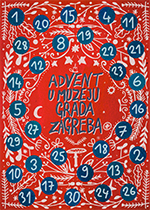Following the example of other European cities, a group of respected citizens founded the Shooting Society in 1786. This was Zagreb’s first civic society. The aim of it was amusement, including shooting practice, as well as reading, games and dancing. As the reputation of the society was enhanced, its membership increased. Among the members were members of the aristocracy and citizens, merchants, municipal officials, café owners and clockmakers, a physician from neighbouring Samobor, and military officials. Contests were held outdoors, in nature, the season lasting from spring to autumn. The best marksmen received a prize of a painted target with the name of the victor written on, or the honorary giver of the prize, and the date of the competition. When the Society House in Tuškanac was built in 1838, there were many entertainments that included dancing, which to some extent fitted in to the national revival events of the time, for that part of the town found that its importance was enhanced, while the Shooting Range was for decades the very centre of social life.
The Music Society was set up in 1827, deriving from the tradition of musicality that was promoted by Bishop Vrhovec at the end of the 18th century, when there was a great deal of playing in his court. He invited trained musicians from Vienna for his court orchestra, also intending that they should teach music in the houses of the citizens of Zagreb. He was one of the founders of this new society, while his successors became patrons such as the leading dignitaries in the public and political life of the town. Among the members were famed musicians like Ivan Padovec, Wiesner-Morgenstern, Franjo Pokorny and others, who also worked in the music school opened as part of the Society in 1829. Public concerts were put on in the hall of the Royal Academy in Katarina Square.
Željka Kolveshi

